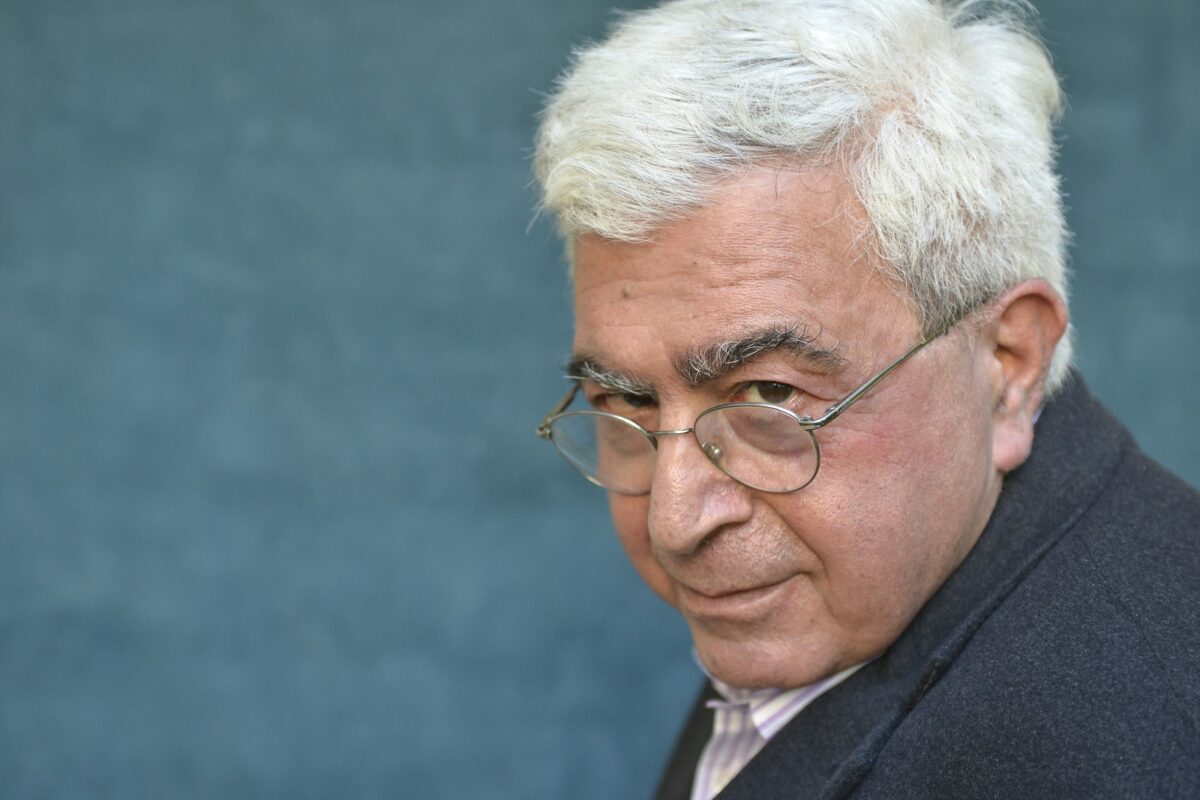
Lebanese renowned writer Elias Khoury dies at the age of 76, leaving behind him a literary, political, and human testament
Elias Khoury is dead. Reading the incipit of the most fortunate of his novels, Bab al-Shams, ‘Gate of the Sun,’ it doesn’t seem possible to find a drier, more atrocious lucidity. “Umm Hassan is dead,” he wrote, opening the first chapter of a monumental saga, composed after seven years of observations, interviews, and dialogues on the Palestinian exile from the refugee camps of Lebanon, his native country.
Elias Khoury is dead and he left behind him a precious heritage of compassion, sense of memory, and literary interest for ‘the other:’ the Palestinian, as a Lebanese national – and the Israeli, the cop, the occupier, as partisan of the Palestinian cause. Knowing that there is nothing heroic or mythical in being born a Palestinian, but also that nothing speaks of the injustices of this world like the Palestinian question. Discoverer of the mutual mirrors of human experiences, Khoury spent more than half a century writing novels and journalism – from ‘Yalo,’ ‘Little Mountain,’ ‘White Masks,’ to Al-Safir, Al-Mulhaq – the literary supplement of Al-Nahar -, and the ‘Journal of Palestine Studies’ -, without losing faith in the role of an intellectual and his ability to make change. He was born to a Greek Orthodox family from Achrafieh, Beirut, in 1948 – the year of the catastrophe that he succeeded to incide so profoundly. And now, he is dead.
Today, it is impressive to read the very first pages of his masterpiece, set in the camp of Shatila, where on this same day, September 16, 42 years ago one of the most heinous massacres of history took its bloody place. Where Umm Hassan, mother of all Palestinians – similar to Ghassan Kanafani’s Umm Saad -, passed away in the general disbelief, in the resurfaced memory of her weeping on the morning of June 5, 1967, the onset of the Six Day War, the illusion that that military advance – stuttered, hesitant, from the Israeli-Egyptian border – could have marked the first phase of the long process of liberation of Palestine. She, tearful and far-sighted, knew that this would not have been the case.
“Everyone was dancing in the streets, anticipating going home to Palestine, but she wept. She told everyone she’d decided to wear mourning. Everyone laughed and said Umm Hassan had gone mad. Throughout the six long days of the war she never opened the windows of her house, on the seventh, out she came to wipe out everyone’s tears. She said she knew Palestine would not come back until all of us had died,” the opening chapter reads.
And a character like this – not mythical, but real: not the indefinite people, but the concrete community of persons – should be imagined today, seen today, remembered today, eleven months ago. Crying in the aftermath of October 7, while everyone was dancing: drying their tears, while now, more than 40,000 deaths later – not corpses, but bodies, human bodies, with thoughts before dying, and affections – everyone is crying. Yet it is not the end. An acute observer like Elias Khoury – not rhetorical, but political – should be mourned today, because together with him, a way of listening – even before telling – the last, forgotten ones, has disappeared. Without patheticism, without mythologisation. With the necessary disinterest of the naked word, in the midst of the bare sentence, on the dense page, through the real, spoken language.
“It’s become our habit to look out for occasions to weep, for tears are dammed up behind our eyes,” he wrote in his ‘Gate of the Sun.’ Elias Khoury is dead and has burst open our reservoir of tears.








